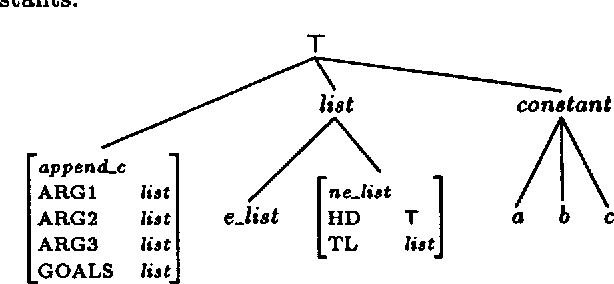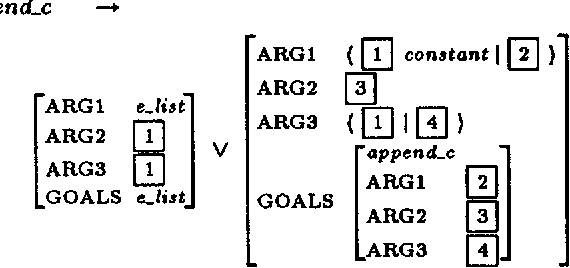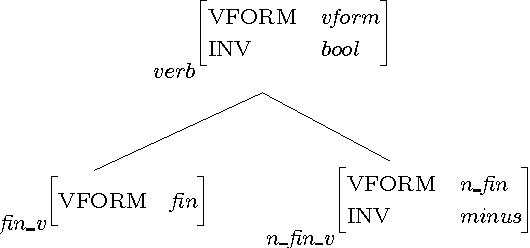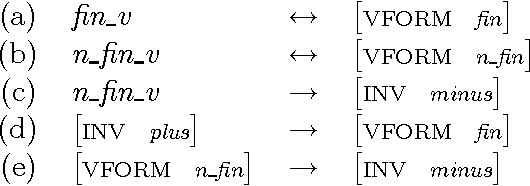Walt Detmar Meurers
Univ. of Tübingen, Germany
The importance of being lazy -- using lazy evaluation to process queries to HPSG grammars
Apr 25, 1996Abstract:Linguistic theories formulated in the architecture of {\sc hpsg} can be very precise and explicit since {\sc hpsg} provides a formally well-defined setup. However, when querying a faithful implementation of such an explicit theory, the large data structures specified can make it hard to see the relevant aspects of the reply given by the system. Furthermore, the system spends much time applying constraints which can never fail just to be able to enumerate specific answers. In this paper we want to describe lazy evaluation as the result of an off-line compilation technique. This method of evaluation can be used to answer queries to an {\sc hpsg} system so that only the relevant aspects are checked and output.
Off-line Constraint Propagation for Efficient HPSG Processing
Apr 23, 1996Abstract:We investigate the use of a technique developed in the constraint programming community called constraint propagation to automatically make a HPSG theory more specific at those places where linguistically motivated underspecification would lead to inefficient processing. We discuss two concrete HPSG examples showing how off-line constraint propagation helps improve processing efficiency.
* 10 pages, uuencoded gzipped Postscript
Compiling HPSG type constraints into definite clause programs
May 02, 1995

Abstract:We present a new approach to HPSG processing: compiling HPSG grammars expressed as type constraints into definite clause programs. This provides a clear and computationally useful correspondence between linguistic theories and their implementation. The compiler performs off-line constraint inheritance and code optimization. As a result, we are able to efficiently process with HPSG grammars without having to hand-translate them into definite clause or phrase structure based systems.
* 7 pages, uuencoded compressed postscript
A Computational Treatment of HPSG Lexical Rules as Covariation in Lexical Entries
Apr 04, 1995Abstract:We describe a compiler which translates a set of HPSG lexical rules and their interaction into definite relations used to constrain lexical entries. The compiler ensures automatic transfer of properties unchanged by a lexical rule. Thus an operational semantics for the full lexical rule mechanism as used in HPSG linguistics is provided. Program transformation techniques are used to advance the resulting encoding. The final output constitutes a computational counterpart of the linguistic generalizations captured by lexical rules and allows ``on the fly'' application.
On Implementing an HPSG theory -- Aspects of the logical architecture, the formalization, and the implementation of head-driven phrase structure grammars
Aug 31, 1994



Abstract:The paper presents some aspects involved in the formalization and implementation of HPSG theories. As basis, the logical setups of Carpenter (1992) and King (1989, 1994) are briefly compared regarding their usefulness as basis for HPSGII (Pollard and Sag 1994). The possibilities for expressing HPSG theories in the HPSGII architecture and in various computational systems (ALE, Troll, CUF, and TFS) are discussed. Beside a formal characterization of the possibilities, the paper investigates the specific choices for constraints with certain linguistic motivations, i.e. the lexicon, structure licencing, and grammatical principles. An ALE implementation of a theory for German proposed by Hinrichs and Nakazawa (1994) is used as example and the ALE grammar is included in the appendix.
 Add to Chrome
Add to Chrome Add to Firefox
Add to Firefox Add to Edge
Add to Edge